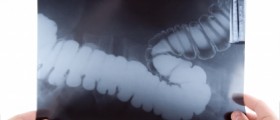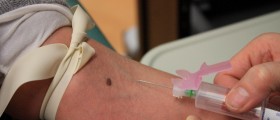
Rectal cancer is actually a type of colon cancer. It affects the terminal part of the large intestine called rectum. The basic treatment of this cancer includes surgery. Still in some cases preoperative chemoradiation is an option and is performed to reduce the size of the tumor so that patient can be easily operated.
Rectal Cancer Surgery
The goal of the surgical procedure is removal of the entire tumor and the affected lymph nodes. The tumor may be locally excised, resected or a patient undergoes resection followed by colostomy.
Local Excision of the Tumor
This surgical procedure can be performed only in case that the tumor has been found in rather early stage of the disease. Polypectomy is one method of local excision of the tumor. Polypectomy is always performed if polyps are found in large intestines. Sometimes polyps are benign and sometimes they contain malignant cells and are therefore malignant.
Resection Surgery for Rectal Cancer
If malignant tumor of the rectum is larger and affects underlying tissues it has to be resected. Together with tumor the doctor will resect even the small portion of surrounding tissue as it may contain malignant cells. After that a surgeon will conduct anastomosis which is a procedure of binding and sewing of the remaining part of the rectum and colon. If whole rectum is resected colon is sewed to anus. Apart from resection of the rectum a surgeon will also remove all the approachable lymph nodes and they are together with the resected cancer sent to pathohistological examination. This will give adequate insight in stage of the disease.
Resection of the Tumor and Colostomy
In advanced stages of the disease a patient undergoes resection of the tumor and surrounding tissue together with regional lymph nodes and then a procedure colostomy is performed. Stoma or artificial opening is made on the front wall of the abdomen. Stoma can be stay only temporary and after certain period of time the patient is operated again, the stoma is closed and the colon is connected to the ending part of the rectum or to the anus. In some patients stoma stays forever.
Depending on the stage of the disease some patients need to go through chemotherapy after the surgery. Chemotherapeutics are most commonly given in advance stages of the disease to kill the cells that might have spread into the surrounding tissue or distant organs.
The recovery time after resection of the tumor varies but patients do recover completely after certain period of time. For those who are only operated regular check-ups are necessary. Even though, the tumor has been removed this does not mean that the patient has been cured and regular check-ups may be helpful in early detection of the tumor recurrence.

















Your thoughts on this
Loading...